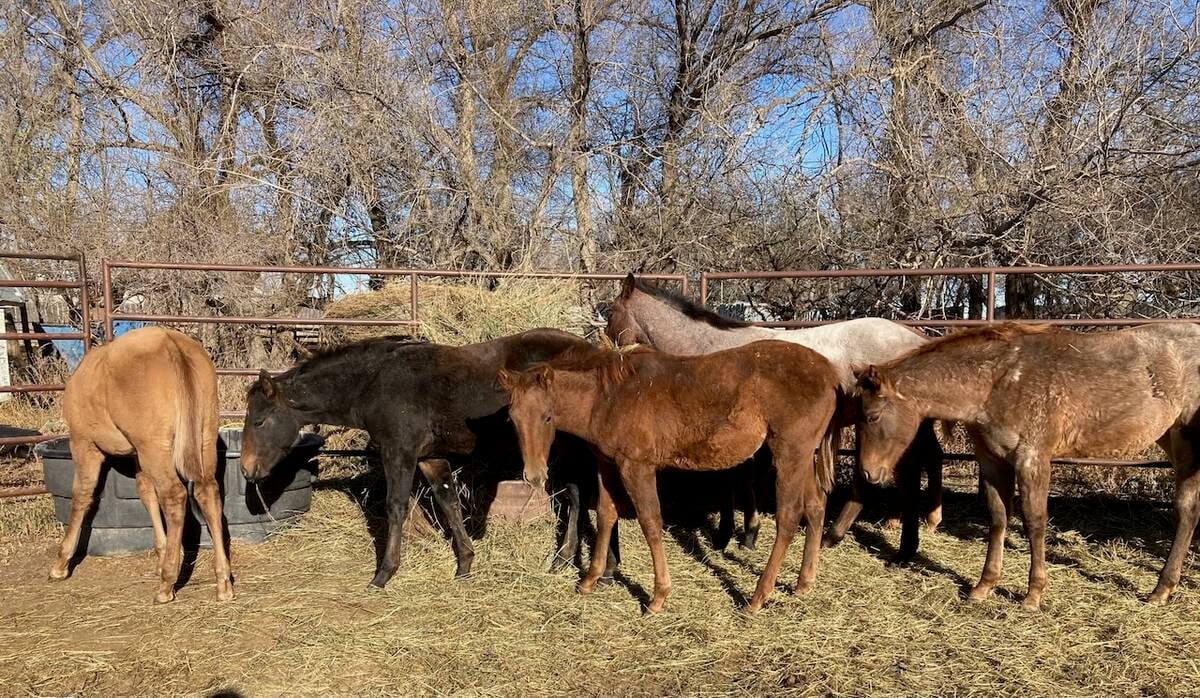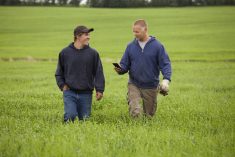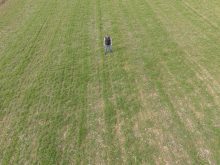Many of you who read this may view plugged combines as a welcome problem after several years of reduced crops due to drought. I don’t operate a combine any longer, yet I like the word picture or vision of trying to shove in too much crop too fast as a “thunk” (my technical term for plugging up).
Communication can also get plugged up during harvest, often a stressful time that can spark volcanic interactions among farm team members.
As I write this column in early July, I reflect on the useful words of Alan Vayhnalek, an extension educator at University of Nebraska-Lincoln (now retired) who provided part of my conflict resolution training in 2021.
Read Also

Fall clean-up and bringing animals home at the Eppich ranch
Winter is approaching which meant emoving old fence rows and bringing livestock home before the cold and the snow at the Eppich family ranch.
To help achieve a successful harvest, here is a list of emotions that Vayhnalek says can block negotiation and plug up communication. I’ve added my insights.
- Appreciation. Lack of appreciation in many farm cultures tells people they are not important to the work getting done. They don’t feel seen or heard. Encourage your team with sincere positive feedback in a timely fashion. Let people know when you see things being done well and express gratitude. Your mental health will also improve if you take time to write out five things you are grateful for before your exhausted head hits the pillow when the dew hits.
- Affiliation. Farm teams are typically composed of family members and non-family employees. Treat everyone well. If you are seeing family members or workplace colleagues as an adversary or enemy, this doesn’t lead to great behaviour and can result in yelling, profanity or blow-ups. Drop what I call your “conflict filter” toward your brother or other team members and ask them what they need in the moment. Try to stay cool, calm and collected even if others choose to be hostile and abrasive. You always get to choose your response. For help in increasing your awareness of your hot buttons, try using our conflict dynamic profile, which you can find at elainefroese.com/coaching/conflict-dynamics-profile/.
- Autonomy. Take time to train combine operators well so they can make decisions on their own. When folks have no autonomy to make decisions independently, they can get frustrated and feel micromanaged. How many decisions are you overriding that you could let go and pass on to the next generation? If your excuse is “I am not a good teacher,” find someone on your farm who is.
- Status. Are members of your team treated as inferior and not given full recognition for their valuable contributions to the farm operation? Great farm leaders should be willing to do any job their employees are expected to complete. When the combine plugs, the best response isn’t laying blame or shame but rather having everyone pitch in to get harvest back into full swing. Remember your intentions and feelings are hidden unless you share them verbally and ask for what you need. If you feel taken for granted, burned out from overwork or are pulling away from doing more than your fair share of the farm workload, who else knows you are frustrated and your reasons for feeling this way?
- Role. Productive negotiation and good communication can be blocked if what you’re being asked to do feels unfulfilling or if your role isn’t clear to you. This strikes many aging farmers if they are grappling with difficult situations at harvest time. Dick Wittman’s phrase “stepping back without stepping away” is helpful to internalize as you use the hours on the combine to figure out what next winter on the farm is calling you to do. Brene Brown says, “being clear is kind.” How clear are you with the rest of the farm team about which roles you want to keep and which ones you need to let go?
- Compensation. In a column entitled “When Family Businesses Become Dangerous” in Progressive Farmer magazine, Lance Woodbury has this to say about business dynamics on family farms: “There are a number of mistakes families make around compensation. One is a tendency to pay people what they need, rather than what they are worth. Another is to pay only what the business can afford.… Another mistake is to pay all siblings equally regardless of their contribution to the business. Without a market-oriented compensation philosophy, the business will eventually suffer.”
- Feedback. Your combine monitors are constantly giving feedback. Unfortunately, management and ownership folks on many farms don’t take the time to talk with family member employees to let them know how they’re doing and if they are meeting expectations. When you don’t have regular performance appraisals like those common in many businesses, you are left “in the dark” about how your manager views your strengths and weaknesses and what an appropriate learning plan would be. Think about ways to block time for a conversation to assess job performance, either for yourself or for your farm family team members. Ask me for Jim Soldan’s performance review at elainefroese.com/contact.
- Track. Document your thoughts with voice texts to yourself so you can compile your learnings and make changes when you have downtime. We can change what we measure. Use that shirt pocket notebook with your old school pen and do a brain dump before you get some renewing rest.
Harvest is my favourite time of year when the entire farm family team and our employees are pulling in the same direction to reap what we have sown. I hope these reflections will spur some positive conversation and insights to improve the culture of agriculture in your fields.
















